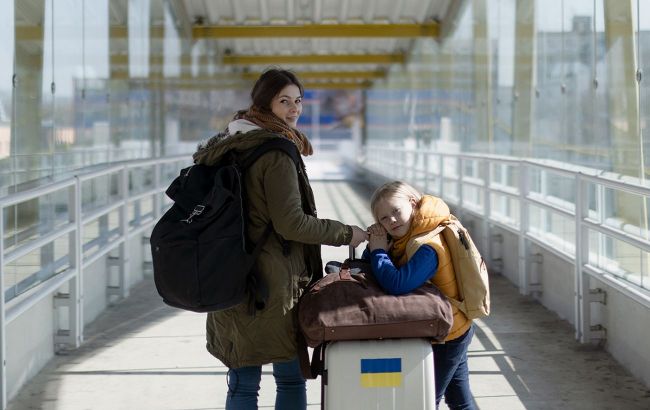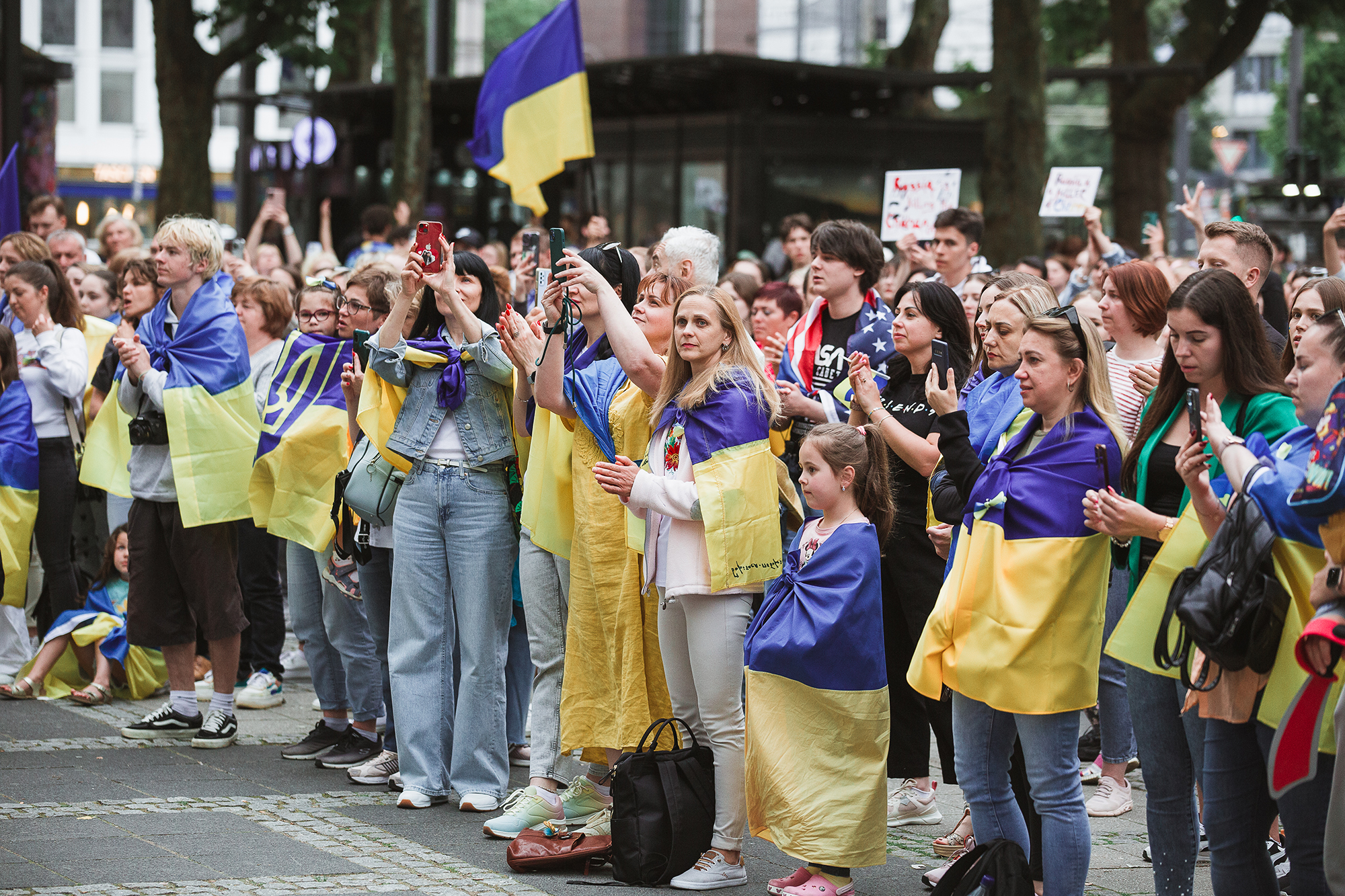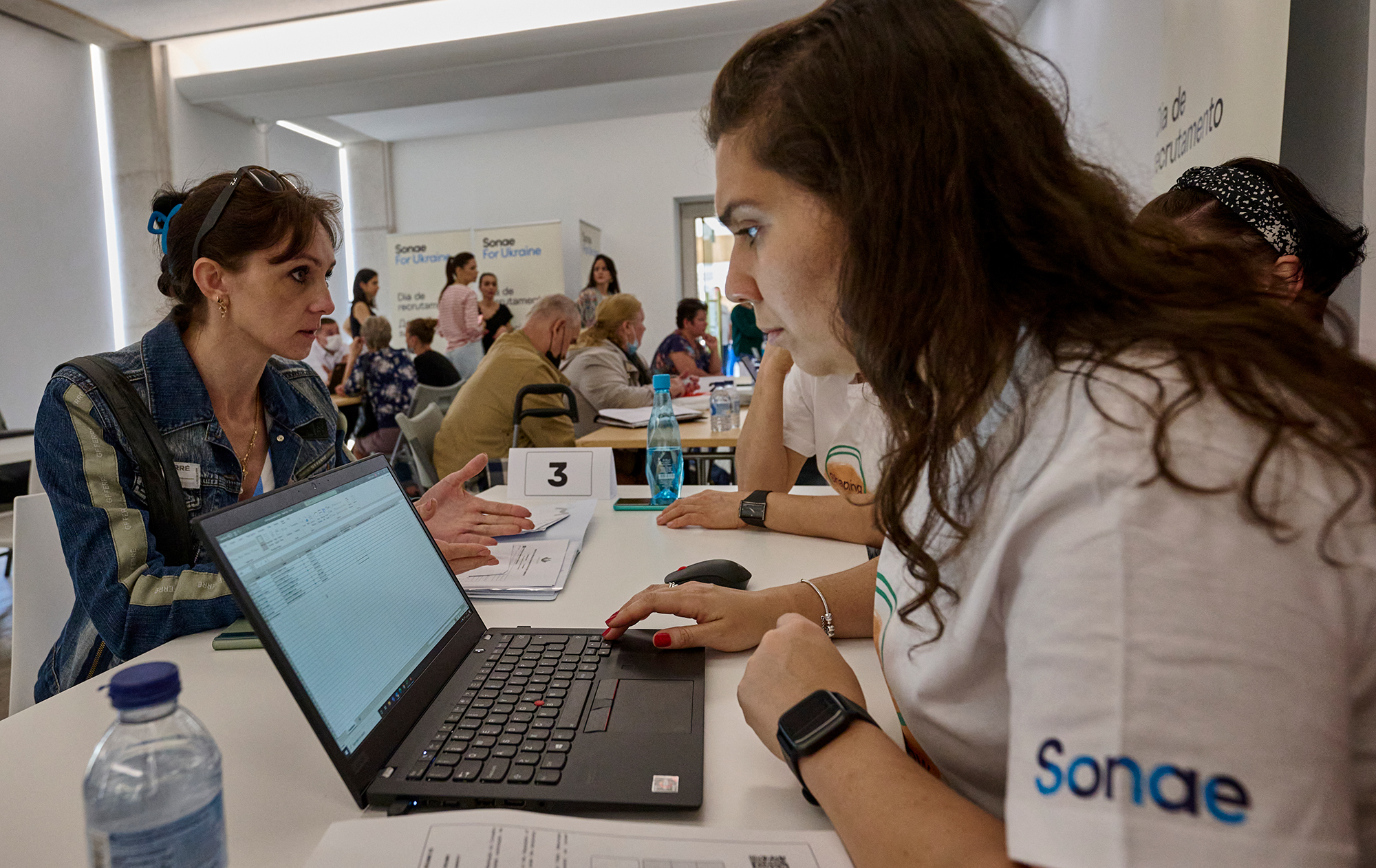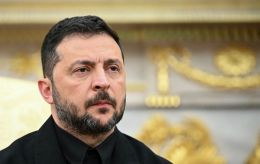Citizenship without language and exams: What new Ukrainian law changes and its criticism
 Ukrainians abroad (illustrative photo: Getty Images)
Ukrainians abroad (illustrative photo: Getty Images)
Last December, the Ukrainian Parliament voted in favor of a bill on multiple citizenship. It had been discussed periodically before Russia's full-scale invasion, but in a slightly different context during the war. What the bill is about, whether new Ukrainians can vote in elections, and who will be allowed to get a Ukrainian passport without knowing the language - read in the article by RBC-Ukraine.
Takeaways
- Who can obtain Ukrainian citizenship under the simplified procedure?
- What are the risks of simplifying the procedure for obtaining a Ukrainian passport?
- Will Ukrainians be able to obtain dual citizenship?
- Will they retain the right to vote?
Discussions about multiple citizenship in Ukraine periodically arise in the information space. Over the years, President of Ukraine Volodymyr Zelenskyy has submitted various bills to the Verkhovna Rada (Ukrainian Parliament) several times. The final draft was considered by MPs on December 17, 2024, and passed the first reading.
With Ukraine's war against the Russian invaders, discussions about the possibility of obtaining another citizenship for Ukrainians have intensified. This is because many Ukrainian citizens were forced to flee the war. There are claims that dual citizenship would make it easier for them to temporarily reside in another country, but this is constantly being debated.
Another reason why the issue of multiple citizenship has become relevant again is foreigners who came to fight for Ukraine. They are offered a simplified procedure for obtaining Ukrainian citizenship, but there are some nuances here as well.
Ukrainian citizenship for foreigners
Back in 2019, while in New York, Volodymyr Zelenskyy met with the Ukrainian diaspora and said that there are 65 million of us. He was referring to ethnic Ukrainians living in different parts of the world in diasporas or outside of them. When lobbyists for the bill defend it, they most often emphasize this category of foreigners-ethnic Ukrainians. But the bill itself does not only mention them.
The Law of Ukraine on Citizenship states that a foreigner cannot obtain Ukrainian citizenship without renouncing his or her first one. The bill promoted by Zelenskyy's team proposes to allow a foreigner to retain his or her citizenship. And to obtain Ukrainian citizenship under a simplified procedure, by submitting a special declaration in which they recognize themselves as a citizen of Ukraine.
Foreigners applying for Ukrainian citizenship under the simplified procedure will not have to prove their level of Ukrainian language proficiency or pass exams on the Constitution and history of Ukraine. They will only have to undertake to learn the language within three years of becoming a citizen.
The bill also states that the simplified procedure will apply to foreigners who have fought, are fighting in the Ukrainian army, or are related to a person who is fighting for Ukraine.
It is not yet known which countries' citizens will be able to obtain Ukrainian citizenship under the simplified procedure. Information about 30-40 countries is publicly available, including EU member states, the United States, Israel, and countries with the largest Ukrainian diasporas, such as Canada and Australia.

Ukrainians in Germany at a rally in support of people affected by the missile attack on Okhmatdyt Children's Hospital in Kyiv (photo: Getty Images)
However, the bill clearly states which countries' citizens will not be able to obtain Ukrainian citizenship. These are the aggressor states, those who refuse to recognize the illegality of the encroachment on Ukrainian sovereignty, and those who voted against the UN General Assembly Resolution on the Territorial Integrity of Ukraine. Accordingly, this refers to Russia and the countries that support it.
Experts are divided on whether Ukrainian citizenship should be granted under a simplified procedure. Some believe that this will help population growth and economic development. For example, migration policy expert Andrii Haidutskyi believes that foreigners should be able to obtain Ukrainian citizenship. However, in this case, the expert is referring to representatives of the diaspora in the second and third generations of Ukrainian migrants and citizens of other countries who have renounced Ukrainian citizenship.
"They really should be able to obtain or restore Ukrainian citizenship under a simplified procedure. Why? Ukraine lacks millions of consumers, inexpensive labor, businessmen, and investors. Businesses need millions of people as labor and consumers of their goods and services, and the government needs them as taxpayers," Haidutskyi said in a comment to RBC-Ukraine.
Other experts believe that new citizens of Ukraine, who were allowed to skip the language and history exams, are unlikely to be able to quickly fit into the Ukrainian context. So, this is not the goal in this case.
"A logical question arises as to what the ultimate goal of such citizenship is if the applicant does not have to know the language and history of the country. The answer is clear: it is not assimilation to become part of the Ukrainian people. If integration into society is not foreseen, then the goal may be to stratify society by creating new citizens without language, history, and knowledge of local legislation," Yaroslav Khlivnyi, a lawyer at Roman Satsyk's law firm, said in a comment to RBC-Ukraine.
It is also unclear whether the new citizens who have received a passport under the simplified procedure will be able to vote in the Ukrainian elections. In their case, it would be logical to grant them this right only after they pass the exams, but the law is still silent on this. This also creates a whole field for discussion.
More than 130 countries in the world grant their citizenship to residents of other countries. Among them are the United Kingdom, the United States, Belgium, Denmark, Germany, Spain, and many others.
Each country has its reasons for granting a passport to a foreign national. For example, Cyprus allows dual citizenship for investments made in the country. Spain has a so-called Memory Law that allows descendants of immigrants who once left for Latin America to obtain a Spanish passport. Israeli citizenship can also be obtained if you have roots in Israel, which is called repatriation. In any case, each country has its special conditions for obtaining a passport without giving up the existing one.
It is not yet clear what special conditions Ukrainian lawmakers set for obtaining Ukrainian citizenship, and the bill suggests that there are none. This is confusing because it seems that the Ukrainian passport is being devalued. But in today's realities, experts believe that this is not the case.
 Ukrainian refugees in Portugal (photo: Getty Images)
Ukrainian refugees in Portugal (photo: Getty Images)
Ukraine is a little-known country in the foreign citizenship market. The key players here are the Caribbean, major Indian Ocean countries, Malta, Greece, and Portugal. Therefore, today, Ukraine needs time to create demand for its citizenship.
"We now need millions of workers, i.e., foreign migrants who will come and work for low wages, as Ukrainian businesses cannot raise wages at a high rate for a long time. Therefore, when we talk about foreign citizens, it is enough for them to offer residents simplified employment conditions, similar to what Poland does for immigrants from post-Soviet countries," Haidutskyi notes.
Another citizenship for Ukrainians
Zelenskyy's bill has attracted more attention for its part on multiple citizenship for Ukrainians themselves. This is primarily about those who were forced to leave for another country because of Russia's full-scale invasion of Ukraine. According to various estimates, between 5 and 7 million people have left Ukraine since 2022. According to Minister of National Unity Oleksii Chernyshov, Ukraine will not force anyone to return. And the law on multiple citizenship will help unite all Ukrainian citizens, wherever they are.
"We do not want to force anyone to return, but our goal is to unite all Ukrainians at home and abroad. First of all, we are adopting a law that will allow immigrants to have dual citizenship, which is currently prohibited. They will have the same rights as those who stayed in Ukraine, including the right to vote,” Chernyshov said in an interview with La Repubblica.
However, when asked if emigrants would be able to vote in the next presidential election, Chernyshov said that they would have to sort out the documents, go through the procedure, and prove that they lived in Ukraine.
There are two opinions in the expert community about whether it is right to allow a Ukrainian who left because of the war to obtain a passport of the country where he or she emigrated. Those who support this point of view say that in this way, the state preserves its citizens. Ukraine does not force them to choose between keeping their Ukrainian passport but not enjoying the benefits of a resident of the country where they are, or renouncing their Ukrainian citizenship in favor of a foreign passport. Thus, a Ukrainian who finds himself abroad can claim the same benefits as citizens of that country, while retaining his Ukrainian passport.
 Ukrainian internally displaced persons (photo: Getty Images)
Ukrainian internally displaced persons (photo: Getty Images)
Skeptics, on the other hand, argue that this rule will, on the contrary, strengthen the Ukrainian's connection to the country where he or she was forced to move. Many Ukrainian citizens are allegedly deterred by the prospect of losing their passports in an attempt to obtain foreign citizenship. Therefore, if they do not get what they want, Ukrainians will return home, and if given the opportunity, they will remain in the country where they left as citizens. Those who are between the two points of view talk about many nuances that need to be taken into account.
For example, many Ukrainians have left the country because they physically cannot stand the Russian strikes and cannot get used to the constant air raids. Other Ukrainians left because they lost their homes, and the imaginary Germany provides a free roof over their heads and a small but life-enhancing allowance. And some have managed to set up their own business in a foreign country in three years. And for all these groups of Ukrainians, the law on dual citizenship can have different meanings.
"A citizen can obtain another citizenship and continue to support the country, for example, financially. At the same time, another citizen who has a different motivation uses multiple citizenship as a chance to get out of Ukraine's jurisdiction. Unfortunately, we do not know the exact number of people who have left the country since 2022. We also cannot understand the motivation of each person, but we can safely say that some of them are already ready to renounce Ukrainian citizenship and cut ties with the country," Yaroslav Khlivnyi added.
Therefore, if they do not get what they want, Ukrainians will return home, and if given the opportunity, they will remain in the country where they left as citizens. Those who are between the two points of view talk about many nuances that need to be taken into account. In this way, the state does not lose its citizens and gives them the green light to return home.
Minister Chernyshov claims that the bill will be adopted by the end of the year. So far, it has passed the first reading, and there are still a lot of questions about it. And the lawmakers themselves are still unable to answer most of them. Whether the new citizens of Ukraine will have the right to vote, who will be affected by the simplified system of citizenship acquisition, how it will work for Ukrainians, and in which countries - all these questions should be answered by the end of the year.

